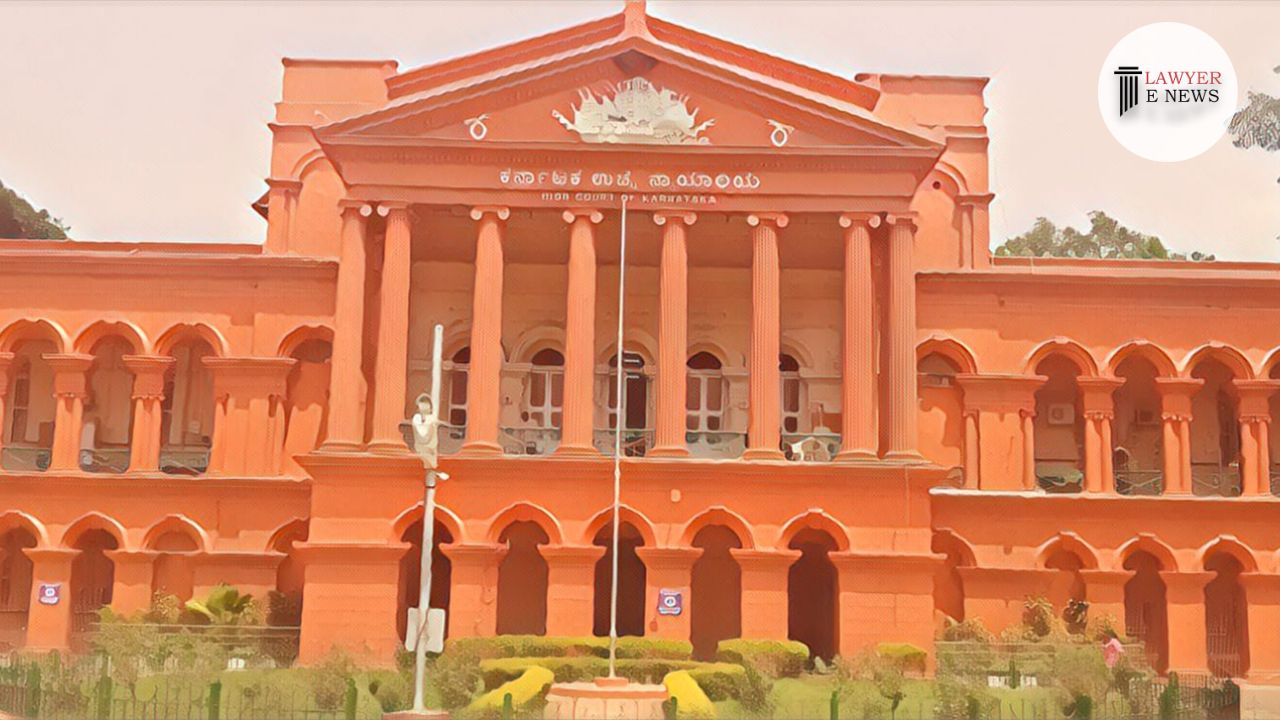-
by Admin
15 February 2026 5:35 AM



In a significant judgment, the High Court of Karnataka has granted bail to Arjun @ Prashanth (A-4) and Prashanth Kumar (A-12), accused in the high-profile murder of social worker Sri Ramakrishna. The judgment, delivered by Hon’ble Justice Shivashankar Amarannavar, overturns the rejection of bail by the II Additional District and Sessions Court, Davanagere, highlighting the need for careful consideration of the right to private defense and the factual context of the incident.
The case involves the murder of Sri Ramakrishna, a social worker actively involved in exposing misappropriations in local governance schemes such as Grameen Udyog Khatri Yojana and NAREGA Yojana. Allegedly, Ramakrishna's activities led to the suspension of Panchayath Development Officer (Accused No.1), who conspired with others to murder Ramakrishna. The appellants, along with other accused, are charged under Sections 143, 147, 148, 120B, 302, 201, 212, and 149 of the Indian Penal Code (IPC) and Sections 3(2)(v-a) and 3(2)(v) of the SC/ST (POA) Act.
The High Court scrutinized the sequence of events leading to the altercation. Justice Amarannavar noted that the deceased was the aggressor, initiating a physical confrontation with the accused. The appellants claimed they acted in self-defense during a sudden altercation. "The deceased's aggressive behavior and the immediate threat posed justified the accused's actions under the right to private defense," the court observed.
The court examined witness statements, especially from CW-25, who corroborated the appellants' claim of self-defense. CW-25's testimony described the deceased's hostile actions and the subsequent response by the accused. The court emphasized the importance of meticulous cross-examination and corroborative evidence in determining the accused's culpability.
Postmortem findings indicated injuries inconsistent with a premeditated attack, further supporting the appellants' self-defense claim. The court remarked, "The absence of incised or chopped wounds suggests the incident was not premeditated but rather a result of a sudden fight."
Justice Amarannavar underscored the principles of evaluating evidence in cases involving severe allegations. The judgment highlighted the necessity of rigorous judicial scrutiny in bail matters, particularly where the right to private defense is claimed. The court stated, "In cases involving severe allegations, the right to private defense must be carefully weighed against the factual context and evidence presented."
The High Court imposed stringent conditions to mitigate any potential threat to prosecution witnesses and ensure the appellants' presence during trial:
The appellants shall execute a personal bond of Rs. 1,00,000 each, with two sureties of the same amount.
They shall not threaten prosecution witnesses.
They must appear before the Trial Court on all hearing dates unless exempted.
They shall not commit any similar offense during the trial period.
They must mark their attendance at Jagalur Police Station on the second Sunday of every month between 10 AM and 5 PM.
The High Court's decision to grant bail to the appellants underscores the judiciary's commitment to upholding individual rights while ensuring justice. By emphasizing the right to private defense and the necessity of careful judicial scrutiny, this judgment sets a significant precedent for future cases involving severe allegations and claims of self-defense.
Date of Decision: 1st July 2024
Arjun @ Prashanth & Anr. vs. State of Karnataka
